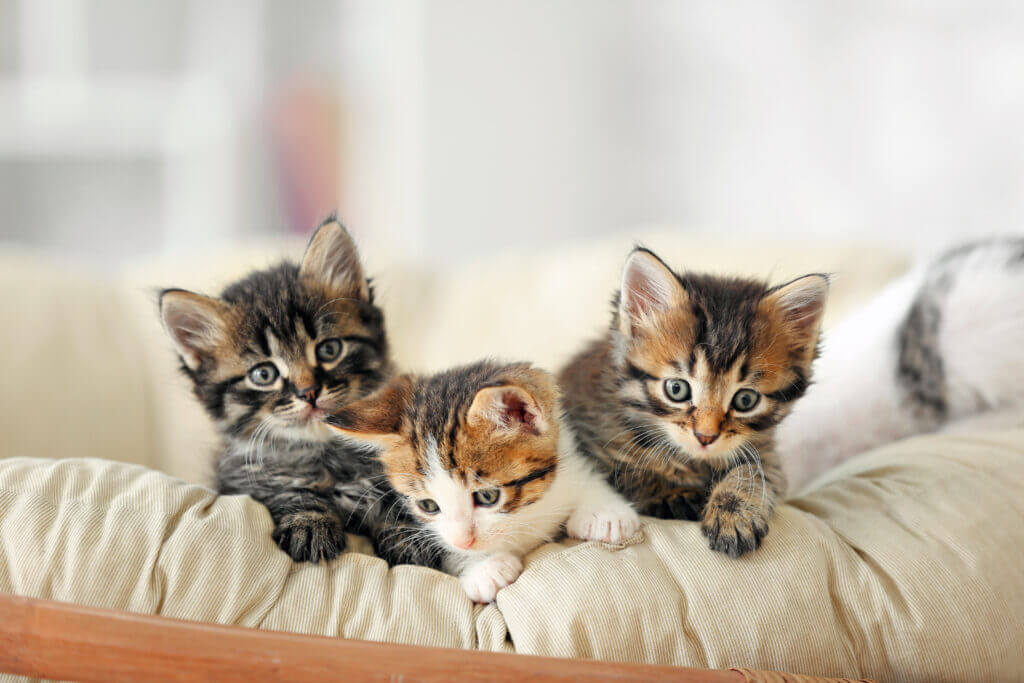Adding a new kitten to your family is incredibly exciting! Depending on the circumstances, you might get the kitten shortly after birth, or you might bring him or her home after several weeks. Either way, you can be sure your furry friend will need lots of care and attention. Here are some tips for taking care of kittens at various stages, so your little one thrives:
Between Birth and 4 Weeks Old
Generally speaking, a mother cat can provide everything her kittens need for the first four weeks of life. There are scenarios, however, in which kittens are separated from their mothers and end up joining their forever families before they’ve reached four weeks old.
If you’ve welcomed an incredibly young kitten into your home, be prepared to provide lots of warmth and companionship. Newborn kittens cannot regulate their body temperature yet, and they don’t like being alone. As such, you should wrap your furry friend in soft blankets and give lots of cuddles throughout the day. The kitten will also need to be bottle fed every two to four hours with kitten milk replacer (KMR), which you can buy from most pet supply stores.
From 5 to 12 Weeks Old
Kittens are usually weaned off their mother’s milk or KMR by about five weeks old. Now they can start eating a solid diet, which should include high-protein, nutrient-rich foods formulated specifically for healthy growth and development. During this time, you will notice your kitten’s motor skills and coordination progressing, so he or she will probably need lots of supervision and a few firm boundaries to stay out of trouble.
From 2 to 4 Months Old
Between two and four months old, kittens grow rapidly. They typically have tons of energy, and their motor skills are still developing, so they tend to be a handful. Kittens need three to four high-protein meals a day at this stage, and they benefit from lots of playtime that aims to facilitate bonding with their other family members.
From 4 to 6 Months Old
Cats reach sexual maturity by six months old, which means they experience a lot of changes between the ages of four and five months. As your kitten leaves infancy behind and enters adolescence, you may notice an increase in energy, as well as some behavioral changes. This stage is similar to puberty for humans and can be somewhat stressful for cats. As such, they may need some corrective training. They also need lots of stimulation in the form of interactive toys and hands-on games. At the end of the day, keeping your cat busy will also keep him or her happy.
By six months of age, your cat should be able to settle into the diet they maintain for years to come, so talk to your vet about the best foods to feed him or her. Now is also the time to consider spaying or neutering. Vets generally like to perform the procedure just before the cat has reached sexual maturity, which may be anywhere from four to six months old.
When You Need a Cat Sitter, You Can Count on ESP Pet Specialists
Need someone to look after your tiny kitten, senior cat, or feline friend somewhere in between? For comprehensive pet care services, turn to ESP Pet Specialists. When families need a pet sitter in northern New Jersey, they know they can turn to us. We’ll treat your pets like they’re part of our own family because we know just how much they mean to you. To book a cat sitter today, call (973) 577-1110 or reach out on our website.

